Italy recover from 23 seconds of madness to find themselves again
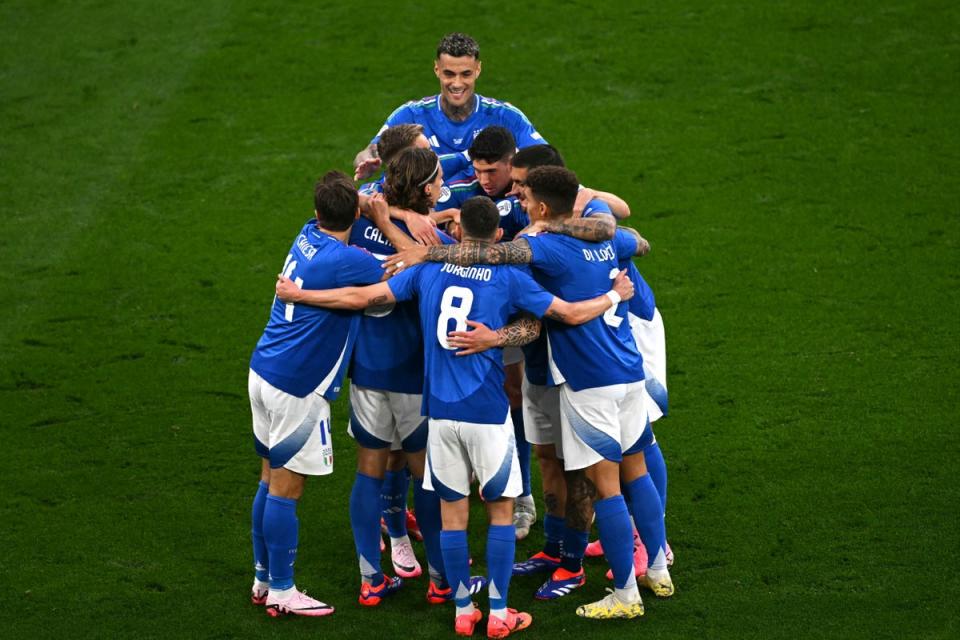
The car horns were blaring all afternoon, roaring up and down the highway leading to Borussia Dortmund’s Westfalenstadion. Passengers leaned out of windows to fly the flag of the double-headed eagle, announcing en masse the arrival of Albania to Euro 2024. Tens of thousands had made the 22-hour drive from the edge of the Adriatic Sea to the Ruhr, Germany’s industrial heartland, to face the reigning European champions. Inspired by their transformative coach, Sylvinho, they travelled with more than hope on their side: filling three sides of the Westfalenstadion and most of the Yellow Wall as well. Albania turned it red, drowning out the famed Azzurri.
And then suddenly Italy were wobbling, their crown teetering on the edge as the Westfalenstadion exploded and the drums pounded in their ears. Albania stunned Italy with the fastest goal in Euros history, coming after just 23 seconds, as Federico Dimarco left his throw-in short, Alessandro Bastoni melted into the ground, and then, before anyone could understand what was happening, Nedim Bajrami thumped a strike inside Gianluigi Donnarumma’s near post. Bajrami raced away, falling into the embrace of a stadium losing its head.
Italy trudged back to halfway and in that moment it seemed the latest twist in the cycle of turmoil that has followed the Azzurri since they defeated England on penalties to win the Euros. Luciano Spalletti, parachuted into the job less than a year ago after the European champions failed to qualify for the World Cup under Roberto Mancini, may have watched on and wondered what he had got himself into after quitting his sabbatical on his Tuscan farm.
But what followed was a different story, one not of Albania resistance, but of Italy discovering themselves again.
Italy have not acted like champions since that night at Wembley but here were the first embers of something familiar. Federico Chiesa admitted to having “flashbacks” to the Euro 2020 final against England after conceding an early goal. But just as they did at Wembley, Italy assumed control and shut down the narrative. After turning the game around by half-time, the holders ensured the second was a non-event. Until Rey Manaj chested down a long punt forward and forced Donnarumma into a vital touch to send the ball narrowly wide in the 90th minute, Albania had not offered a hint of threat since Bajrami had the holders rocking.
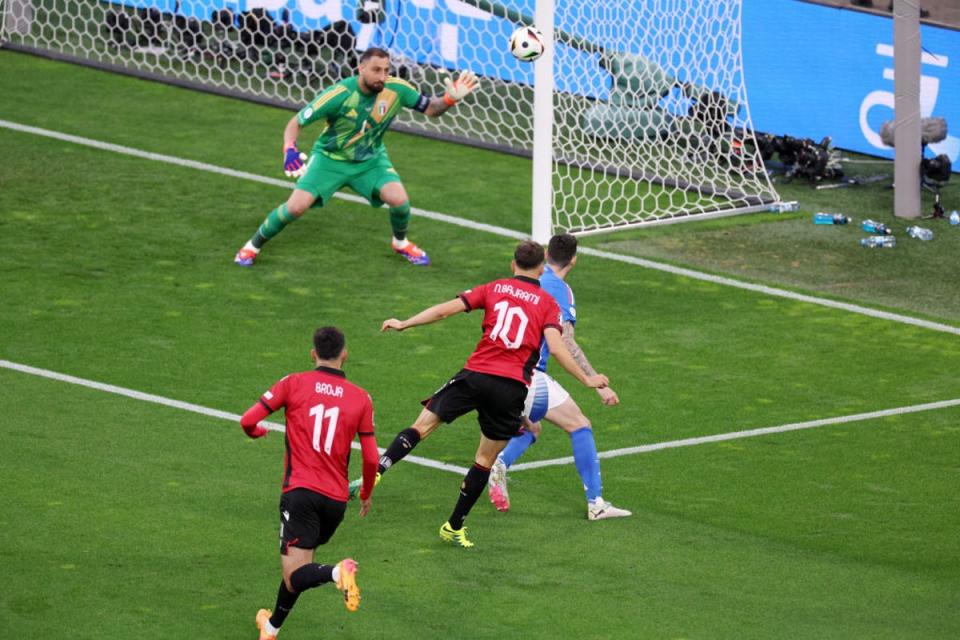
As Italy settled, they did so thanks to the assured, calm touches from one of the few remaining pillars of their unexpected Euros triumph. Nicolo Barella, with his constant checking over his shoulder, assumed control with neat, delicate strokes in midfield. The 27-year-old would prove to be the match-winner with his first-time strike from the edge of the box and he has become the figure to lead Italy now the days of Leonardo Bonucci and Giorgio Chiellini’s grit are gone.
“He is the man who grabs the team by the scruff of the neck and keeps us ticking,” Spalletti enthused. The 65-year-old wants his team to play in the right way and was proud of how they recovered from the earliest of shocks. Alongside Barella, Jorginho remained poised, turning clever passes behind Albania. On the right wing, Chiesa showed signs of his own rejuvenation, glimpses of the form he showed at this tournament before injuries hit.
Spalletti therefore emerged with a win, positives to take and areas to work on following a night that started with disaster. “These things happen,” Spalletti shrugged. “They showed they’ve got strong character as well as skill. We played the game in the right way. It’s true, the scoreline doesn’t reflect the difference between the two teams.”
Albania had reached their second major international tournament thanks to the intervention of Sylvinho, the former Arsenal and Barcelona left-back, who took charge at the start of 2023 and inspired a country of 3 million people to the top of their qualifying group. Alongside Pablo Zabaleta and Doriva, Sylvinho installed a sense of confidence and believed that they were not fazed by being drawn into the group of death alongside Italy, Spain and Croatia.
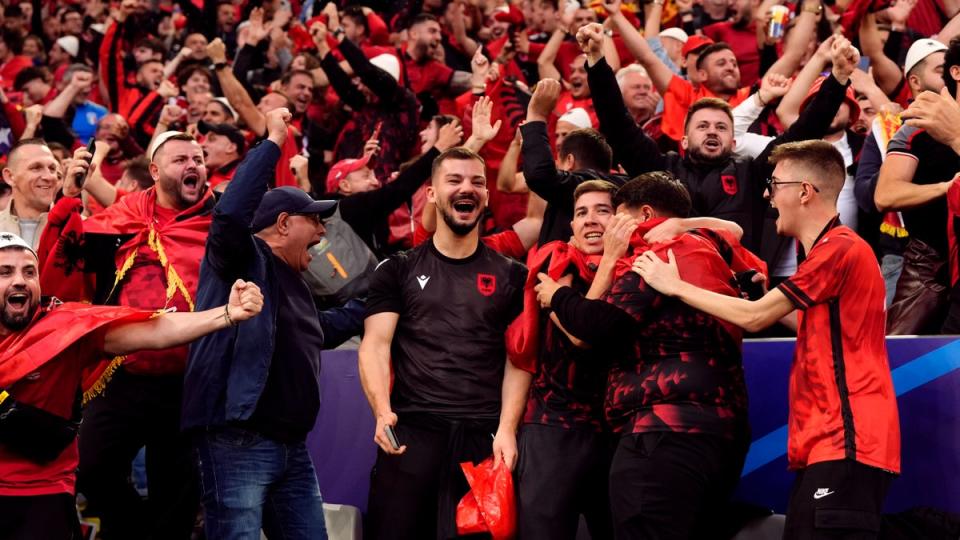
Albania threatened to disrupt it but it soon became a very different game. Italy could have levelled within seconds when Lorenzo Pellegrini curled wide, then Bastoni made amends to the considerable relief of himself and Dimarco, meeting an inswinging Pellegrini cross at the back post following a short corner. The equaliser in the 11th minute silenced the wall of Albania fans, a crucial moment that allowed Italy to start again. Spalletti’s side forced Albania to camp on the edge of their own box; there Barella pounced as a clearance fell to him and he instinctively cut across it to whack Italy into the lead.
More should have followed. Italy had turned the game around and the only thing that was missing were the goals to reflect it. Frattesi saw a chip touched onto the post by Thomas Strakosha following two clever touches in a row from Jorginho and then Gianluca Scamacca. Italy’s No 9 was then denied in his bid to add to his solitary international goal when Strakosha saved well with his legs, before Pellegrini glanced wide from close range. Italy would barely trouble Albania again but they did not need to.
In a way, the champions picked up where they had left off three years ago.
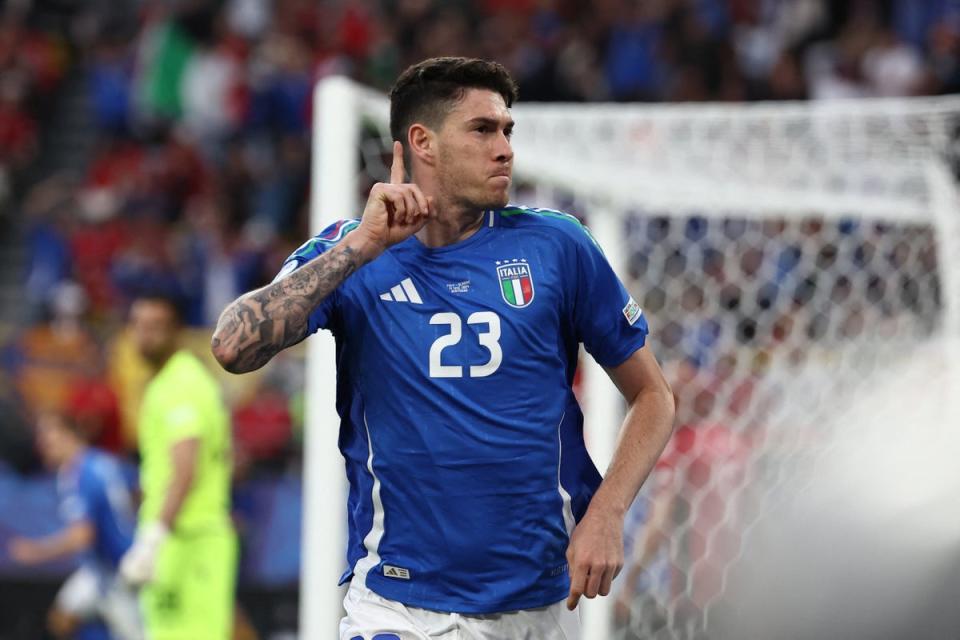
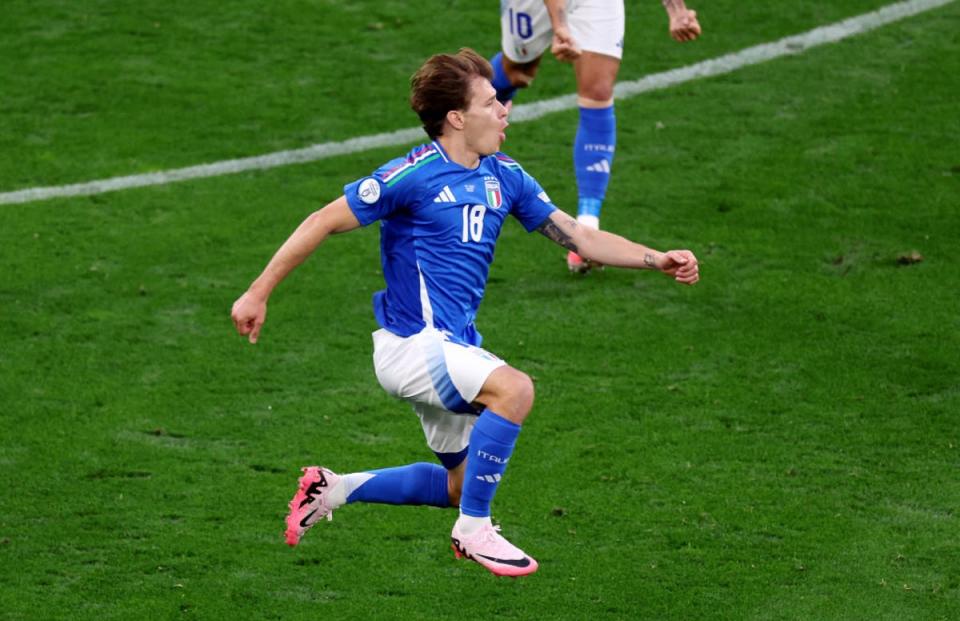
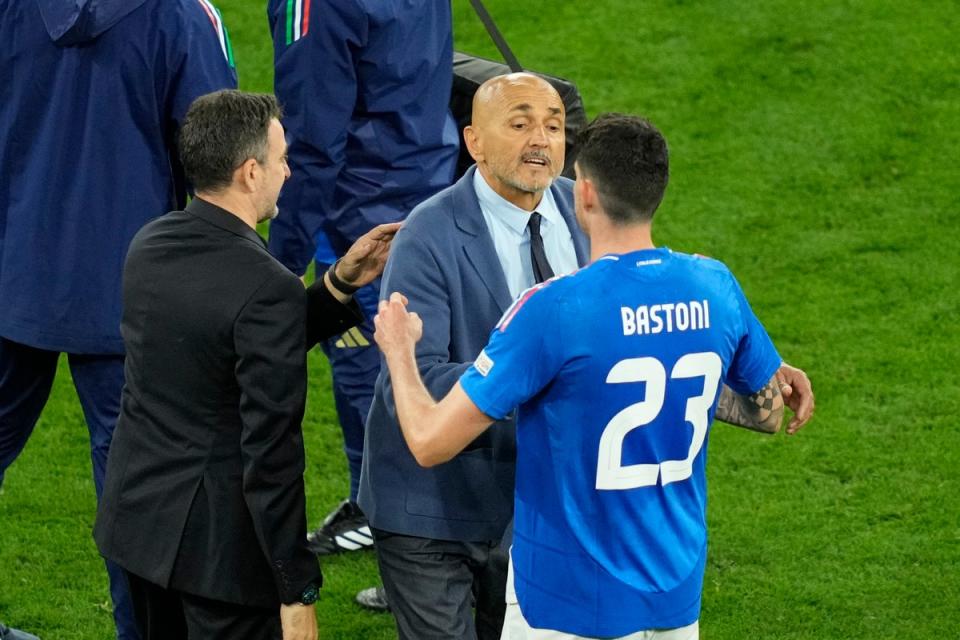

 Yahoo Sport
Yahoo Sport 



































































